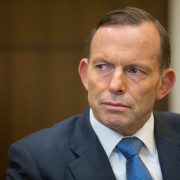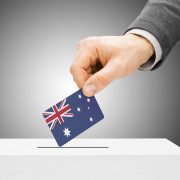The post pandemic political picture
By Andrew Elsbury
The political landscape of Australia and the world will be shifted significantly by the COVID19 outbreak. Indeed, as State Governments close their borders, effectively reinstating the sovereignty of their jurisdictions, many Australian citizens are getting a taste of the pre-federation Australia.
While Western Australia closed its borders almost completely, and both South Australia and Queensland have police at their border crossings, the Federal Government continues to attempt a coordinated response to the pandemic.
Prime Minister Morrison has already stated he is fighting a war on two fronts, one against the virus and the second against the potential economic disaster that the shutdowns and unemployment present.
On the first front there are signs of hope and new cases, for the time being, seem to be plateauing. On the second there will be a much longer road to recovery. For while paying employers to keep employees on is a welcome measure it is certainly unsustainable for a long term.
On the Friday (3/4/2020) episode of A Current Affair, Economist Chris Richardson stated “Our Governments don’t owe much debt, whereas the rest of the world owes heaps”. This is as close as a tick of approval as you are going to get for Coalition Government post 2013 fiscal policy. It does not mean we are immune to the global financial catastrophe but we will weather it better than most nations.
The third front the Prime Minister diplomatically avoids talking about is the one he is fighting against the State Premiers. In particular Gladys Berejiklian and Daniel Andrews. Both have been problematic with their push for school shutdowns and a stated desire for complete population lockdowns.
You only need to listen to the Victorian and New South Wales government lines of ‘ensure you have 14 days of supplies in your homes’, while Canberra is saying don’t panic buy, to see an inconsistency in messaging.
For the time being, a détente has been reached between the states and federal government. However, with school holidays in Victoria ending next week, you can expect the debate around students returning to school campuses to become a flashpoint.
The comfort that Australian governments, of any persuasion, can have in a crisis is that voters are loathe to change the government of the day. Barring a complete failure, the population will generally seek the security of a continuation of government.
The Federal Parliament does not need to go to an election until 3 September 2022, however, I would suspect that an election will be held in 2021, allowing the Morrison Government to maintain the momentum of the COVID19 response. Victoria is not due to go to the polls until November 2022 and NSW is March 2023, and I would suspect both incumbents will retain power.
Even when concern around the virus is gone the lingering financial impact of the pandemic will be only the beginning of the disruption it will cause.
Many nations will take a Trump style approach to trade, seeking to maintain industrial capacity inside their country with a greater emphasis on self-reliance for critical supply chains.
Social media is already rife with anti-China rhetoric. This is not just an Australian phenomenon. We are already seeing various states blaming China, not just for the pandemic but accusing them of profiteering from the global impact.
This sort of talk can be dangerous. Those of a radical political agenda may seek to capitalise on high unemployment rates and increasing nationalism. Pride in one’s nation is not inherently a bad thing, but when that translates to hatred of another, that is where danger lurks.
There is no doubt that the world will emerge from this crisis significantly changed. The political impetus for greater globalisation will not only have been halted but, most likely, reversed. That, alone, will create new geo-political pressures.
National sovereignty, control of borders, greater self-reliance and residual government social and economic support will make traditional left and right ideological divides almost obsolete.
Governments that have managed to avoid total catastrophe (however one defines that) will likely accrue a significant incumbency benefit. How they continue to govern will also look quite different.
RMK+A has decades of experience working with clients to help them understand the political environment and its impact on their business. We provide analysis and briefings based on client’s market position, competitive setting, the political background and regulatory framework.












Leave a Reply
Want to join the discussion?Feel free to contribute!